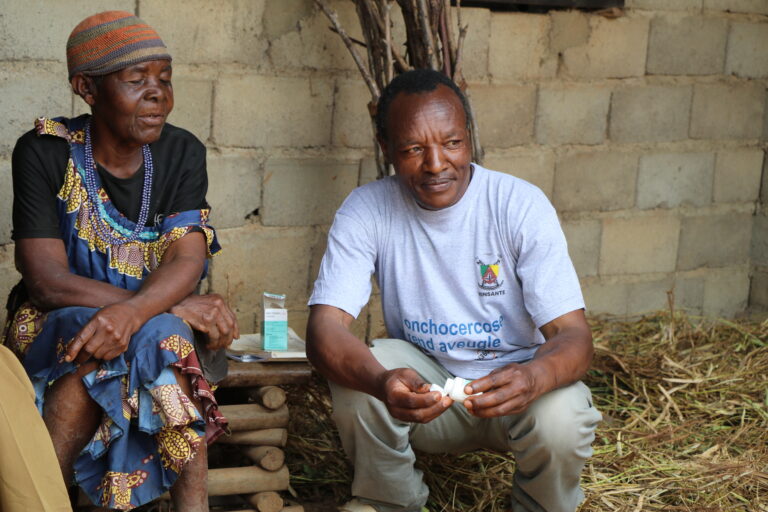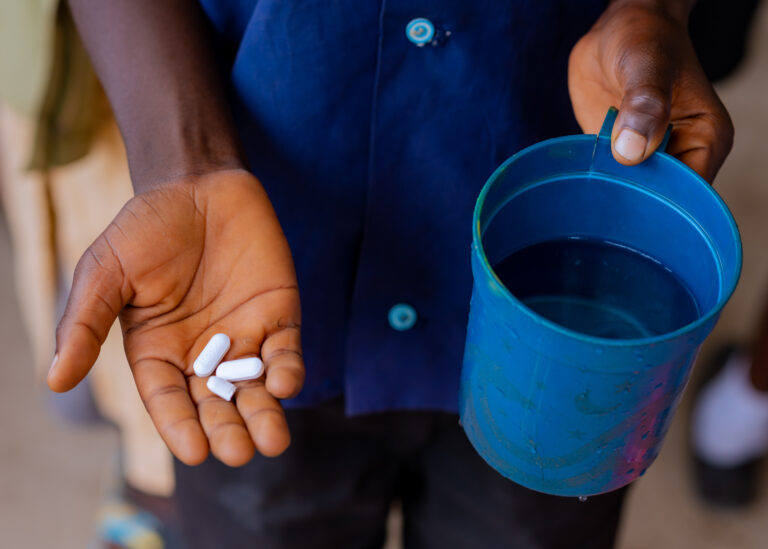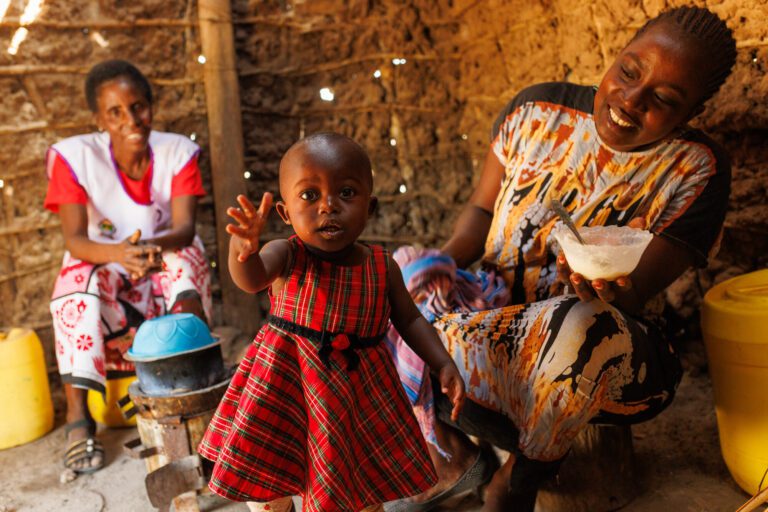3 Things to be Optimistic About in 2025
I find life an exciting business – and most exciting when it is lived for others.
Helen Keller
A new year brings new opportunities to celebrate our progress and recognize the prospects we have to create positive ripples for children and families around the world. By working with families, communities, partners, and governments, Helen Keller Intl is helping to deliver simple, cost-effective solutions that improve health, nutrition, and vision on a large scale and for the long term. As we start 2025, our work gives us plenty of reasons for hope. Although families are facing many interconnected challenges, we’re making incredible progress in improving nutrition, reducing child mortality, and eliminating debilitating diseases. Here are three encouraging developments we are optimistic about this year:
Food Fortification is Bridging Nutrient Gaps
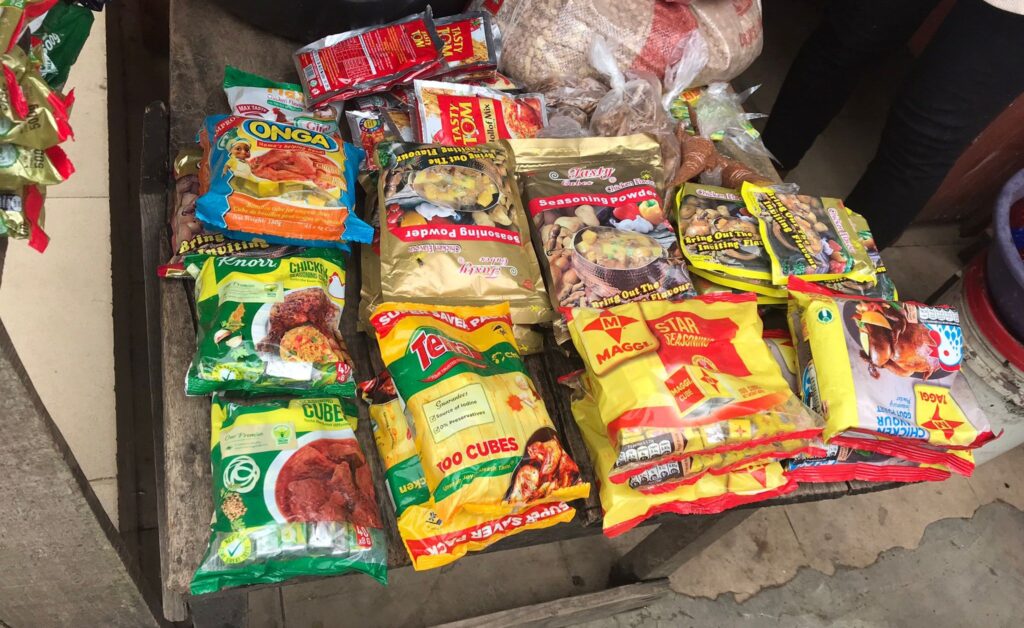
For more than a century, large-scale food fortification has been used to improve nutrition, from iodized salt to iron and B vitamins in cereal to vitamin A in cooking oil. The practice is remarkably cost-effective, with one dollar of investment in food fortification delivering 27 dollars of benefits. Building on these achievements to expand food fortification could reduce micronutrient deficiencies and improve the health of millions.
In West Africa, bouillon cubes – small, dehydrated blocks of stock or broth used as seasoning in many recipes – are condiments used in nearly every household. Research conducted in partnership with the Bill & Melinda Gates Foundation has identified fortified bouillon cubes as one of the most cost-effective strategies to bridge the nutrient gap in regional diets.
Helen Keller helped develop voluntary standards for fortifying bouillon cubes with iron, zinc, folic acid, and B12, which Nigerian government regulators recently endorsed. As the largest country in West Africa, this is an important milestone for food fortification in Nigeria and across the region. Helen Keller is working closely with other ministries of health across Africa to expand access to essential nutrients for children and families through a product already used by more than 95% of households.
A Common Antibiotic Can Save Children’s Lives
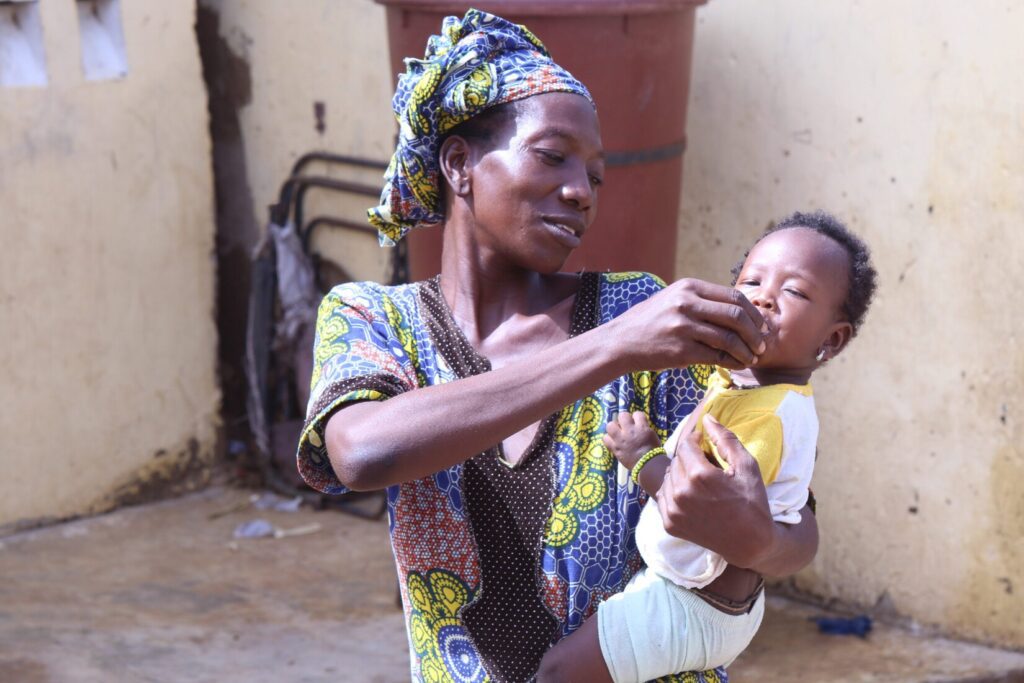
Azithromycin is an integral part of the strategy to eliminate trachoma through mass treatment, but more recent studies have shown that it can also save children’s lives. Communities that received the broad-spectrum antibiotic to treat and prevent trachoma experienced an unexpected benefit – decreased child mortality. Twice-yearly doses of azithromycin have been shown to reduce child mortality by up to 18%. The World Health Organization has already recommended limited distribution of the medication, while monitoring for antimicrobial resistance, for children aged 1-11 months in areas of sub-Saharan Africa with high rates of child mortality.
New research indicates expanding azithromycin’s use to all children under five in high-risk areas would save even more lives by further preventing the spread of common childhood illnesses that can be fatal, especially in areas with limited access to medical care. Many countries that could benefit from regular azithromycin are places where Helen Keller already trains community health heroes to distribute biannual vitamin A and deworming medication to support good nutrition and prevent disease. Adding azithromycin to those efforts, combined with surveillance for antimicrobial resistance, offers a cost-effective option to further improve health and save lives.
Millions of People are No Longer at Risk of Disease
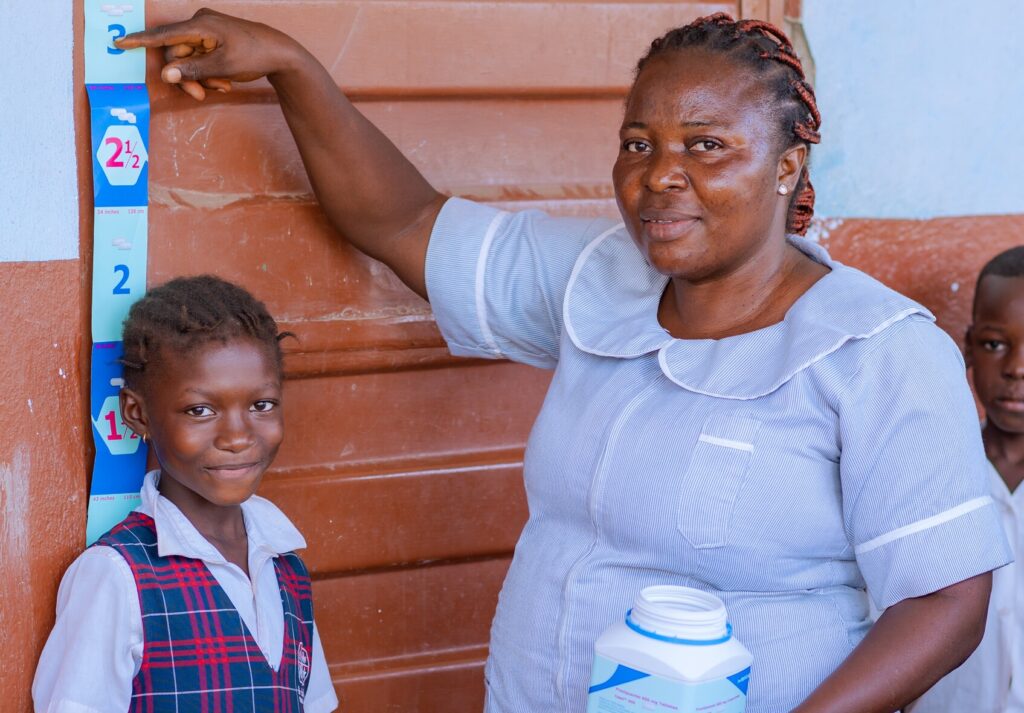
After decades of investing in the fight against neglected tropical diseases, tens of millions of people are no longer at risk of these debilitating illnesses. Working with ministries of health, partners, and communities, Helen Keller has helped to protect millions of people against five of these diseases – lymphatic filariasis, river blindness, schistosomiasis, intestinal worms, and blinding trachoma – through large-scale distribution of preventative medication and treatment. Today, we’re seeing the results of this work: diseases are being eliminated, and we’re reducing mass treatment in many countries because fewer people are at risk.
In 2023, Helen Keller contributed to eliminating trachoma as a public health problem in Mali. Today, Niger is on the verge of becoming the first country in Africa to eliminate river blindness, and we expect to be able to stop mass treatment in areas of Burkina Faso and Guinea soon. Once endemic in 386 districts across six countries, lymphatic filariasis now persists in just three, all in Burkina Faso, highlighting the transformative impact of decades of collaboration and community engagement.
We’ve also made significant progress against schistosomiasis and intestinal worms by reaching more than 75% of school-aged children with preventive medication in more than half of the health districts in Burkina Faso, Mali, Niger, and Sierra Leone. This year, we also plan to bridge a critical treatment gap for schistosomiasis by piloting delivery of a new pediatric formulation of praziquantel, extending care to preschool-aged children and taking a major step in ensuring good health for the next generation.
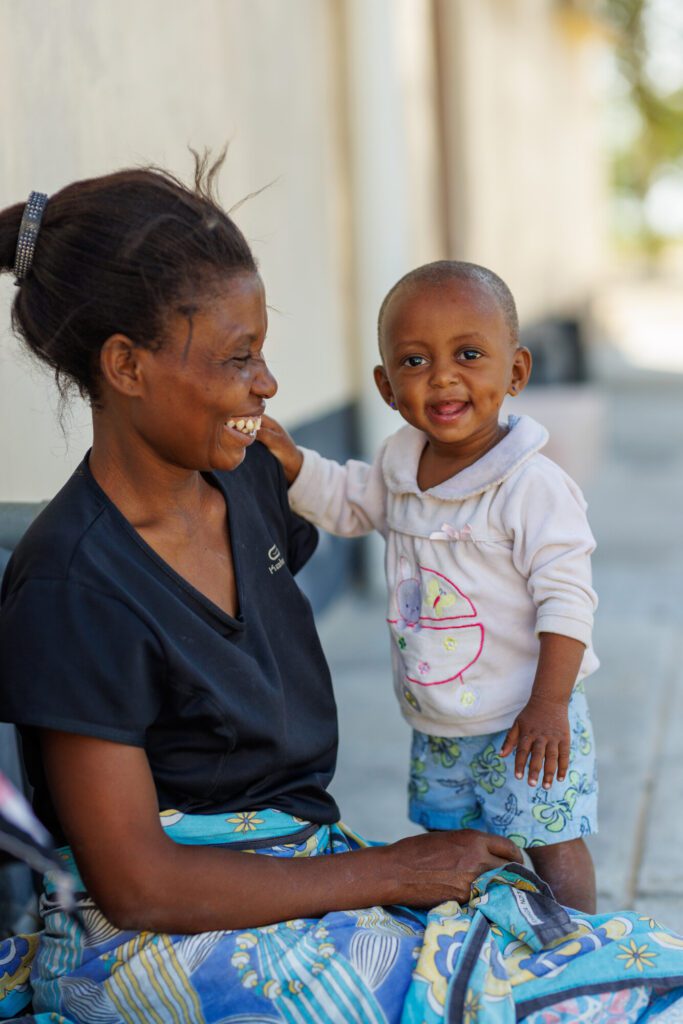
Help us to continue advancing good health, sound nutrition, and clear vision in 2025.

